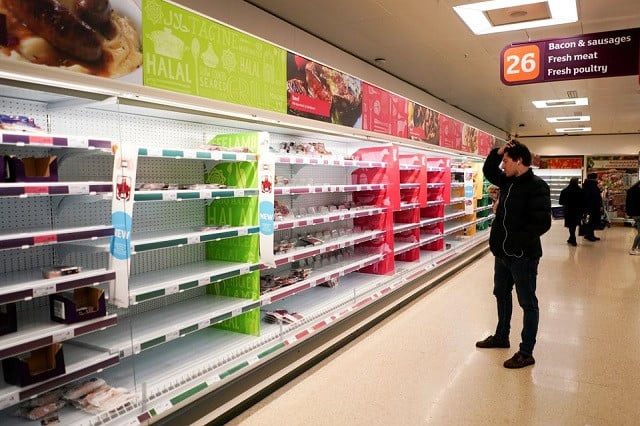UK facing supply crunch due to Covid and Brexit
Factories, restaurants and supermarkets seek government help ahead of Christmas

Britain’s factories, restaurants and supermarkets are facing stubborn supply problems due to the Covid pandemic and Brexit, sparking calls this week for government help ahead of Christmas.
US burger chain McDonald’s ran out of milkshakes and bottled drinks this week, blaming a lorry driver shortage that created supply chain issues and a slowdown in UK business activity.
Rival fast-food giant KFC was forced to remove some items from the menu, while restaurant chain Nando’s has temporarily shut 50 outlets due to a lack of chicken.
Supermarkets are also feeling the heat, with frozen-food group Iceland and retail king Tesco warning of Christmas product shortages.
“The reason for sounding the alarm now is that we’ve already had one Christmas cancelled at the last minute,” Iceland boss Richard Walker told the BBC.
“I’d hate this one to be problematic as well,” he added, urging the government to classify foreign lorry (truck) drivers as skilled workers to allow more on the roads.
Britain’s powerful CBI business lobby warns retail and distribution stocks are at a record low.
Walker estimates Britain currently faces a shortage of about 100,000 lorry drivers.
Read Britain tells EU on Brexit deal: it wasn't going to last forever
“We’ve got a critical shortage now, which we can’t address simply by recruitment because of the length of time it takes to train lorry drivers,” said Rod McKenzie, director of policy at the Road Haulage Association.
Covid helped spark a supply-chain crisis, experts say, as multiple lockdowns prompted a fresh exodus of EU workers.
“The immediate cause of general disruptions to supply is the ongoing impacts of the pandemic,” King’s College London economics professor Jonathan Portes told AFP.
“It is hardly surprising that closing down very large sectors of the economy and requiring millions of people not to work, and then reopening those sectors -- not once but several times -- would cause disruption to supply chains and mismatches in the labour market. This is true across Europe.”
Brexit meanwhile created major border delays after Britain’s exit from the European Union on January 1, while new immigration rules disrupted recruitment.
That resulted in fewer EU nationals working in the logistics sector, which tends to be shunned by Britons due to low pay and long hours.
The pandemic then persuaded even more foreign workers to leave.
Meanwhile, Britain’s carmakers are slamming the brakes because of staffing constraints and a global shortage of microchips.
Published in The Express Tribune, August 27th, 2021.
Like Business on Facebook, follow @TribuneBiz on Twitter to stay informed and join in the conversation.


















COMMENTS
Comments are moderated and generally will be posted if they are on-topic and not abusive.
For more information, please see our Comments FAQ